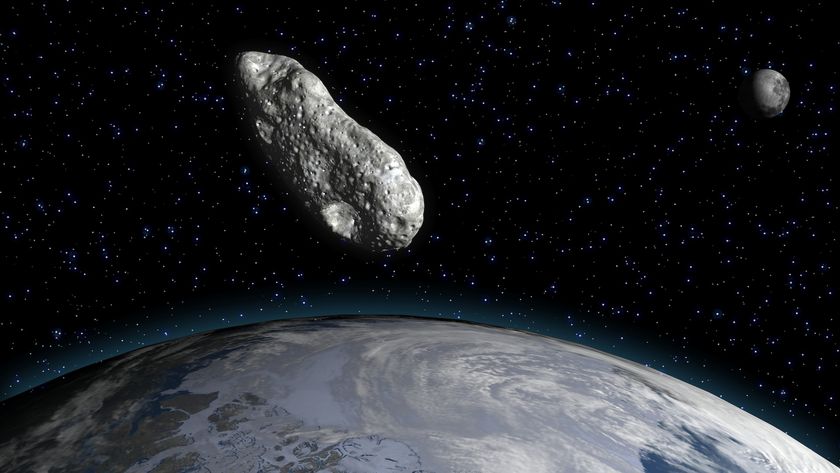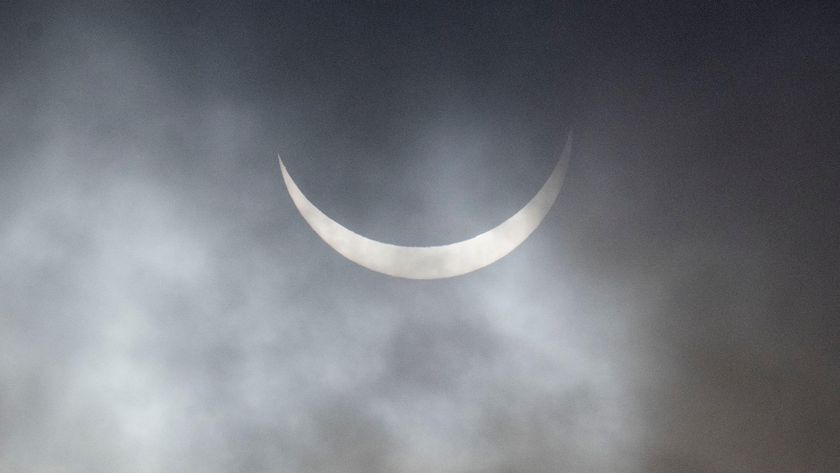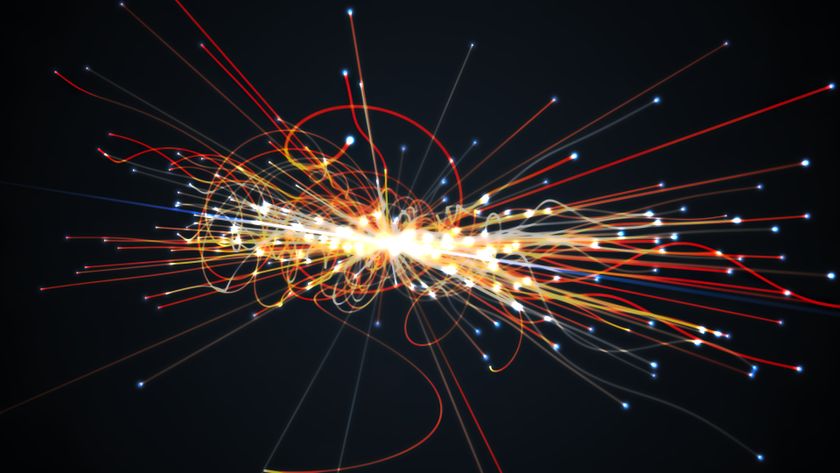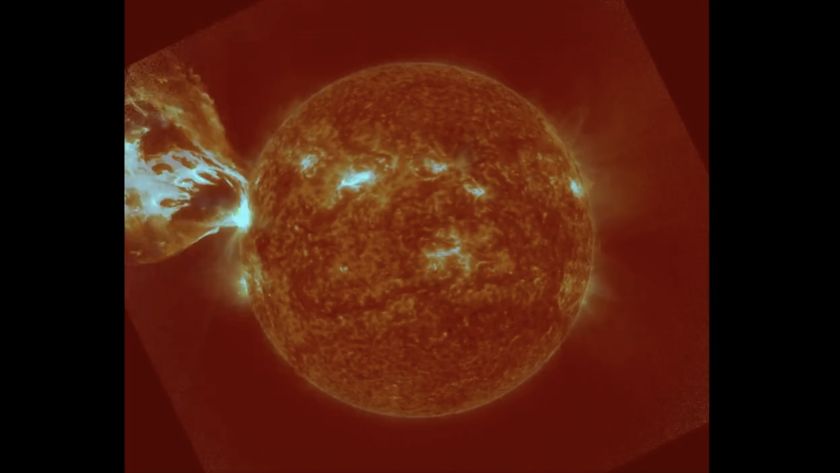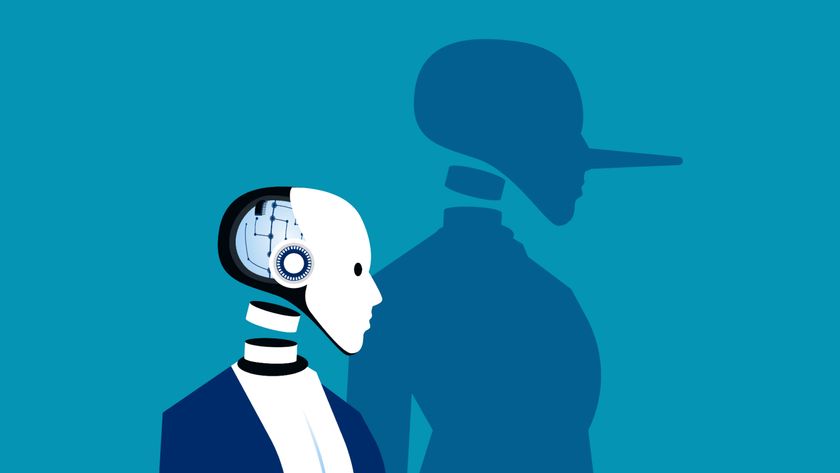
Before It's Too Late: An 'Interstellar' Lesson for Humanity's Future (Op-Ed)
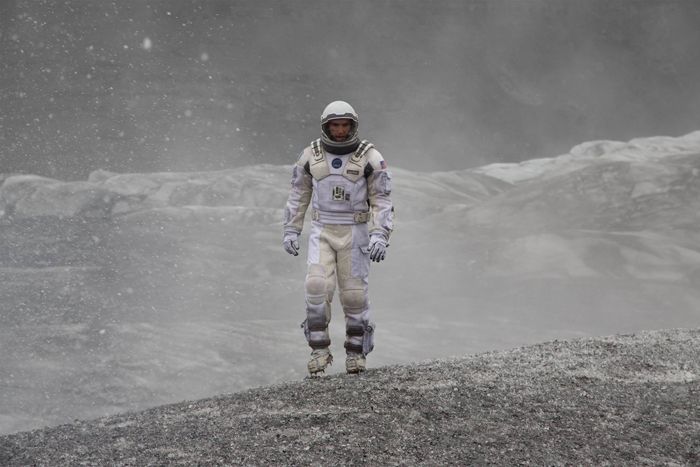
Bryan Johnson is an entrepreneur, investor and founder of the OS Fund and Braintree. Follow him on Twitter at @bryan_johnson. Johnson contributed this article to Space.com's Expert Voices: Op-Ed & Insights.
Movies and books can be time machines — transporting us to future worlds, showing us glimpses of where humanity may be heading. In Interstellar, our future society is struggling to survive, as most people shun technology in favor of blind hope, and only a few fight to change their fate.
In this not-too-distant future, surveillance drones can stay afloat for decades, but people can no longer feed themselves. Some of the brightest minds of the world are working hidden in secrecy to avoid the scrutiny of a society that has rejected the idea that human space travel has value.
While watching the movie, I couldn't help but wonder what their future would have looked like had they harnessed the technological promise of decades prior. The message here for our present-day is powerful: We have to lay the groundwork now for technologies that can't be developed on a moment's notice during crisis. These are technologies with incredible potential but whose applications we might not yet fully understand.
In our daily grind, it's hard to think about the need for such technologies. Our collective sights are often, understandably, set on satisfying our near-term needs. Not enough of us are working on the long view, the hard problems that we as a society must tackle together to ensure the kind of future we want for generations to come. And we have big problems now that we know we need to solve — finding sustainable energy resources, protecting earth's fragile environment, fighting pandemics, and yes, feeding the world. [Breaking Down the Science of Interstellar (Google Hangout )]
So what can we do? For me, the answer is that we need to rewrite the operating system (OS) of what people aspire to, what skills they acquire, what things they pursue and the ecosystems capable of supporting them.
I founded the OS Fund to provide that ecosystem, to support innovators who can develop the enterprising technologies that are woefully underfunded. These technologies are higher risk and take longer than other investment options, but they're also central to humankind thriving. We simply do not have enough resources — people, money or ecosystems — to support the required efforts.
Sign up for the Live Science daily newsletter now
Get the world’s most fascinating discoveries delivered straight to your inbox.
Write our own future
"Without an imagined picture of the future, our civilization would not exist."~ Dan Falk, "In Search of Time"
Part of our fundamental human nature is to imagine the future, whether picturing our next vacation or planning for a child's college education. The same memory systems we use to remember our past are active when we think about our future. It's a sort of mental time travel, in which we draw on our past experiences to imagine and anticipate future events.
As a society, we can look at our past and piece together the kind of world we want to live in. We can also draw lessons from our past failures and successes.
When I look back at human history, I see long periods of seeming stagnation followed by short but remarkable periods of growth. These bouts of innovation led to fundamental changes in how we live — in what I call the OS of life. Just as computers have operating systems at their core — the foundation upon which all applications are built — everything in life has an OS.
For example, for thousands of years, people were sick and dying from polluted water and diseases without even realizing why. They had no idea that tiny microbes in the environment were the source of the diseases. Starting in the 1500s, and then very slowly over the next few hundred years, scientists one by one (think Louis Pasteur of pasteurization and Joseph Lister, as in Listerine) began to put the pieces together. By the late 19th century, humanity had a new OS for medicine — one in which water, medical instruments and food were better sanitized from bacteria, minimizing disease for millions.
These OS rewrites have happened throughout history. During the past few decades, we have lived through many OS rewrites in the IT and communication sectors — telegraph, telephone, fax, Internet, cellphones — but the operating systems of medicine and energy are overdue to be rewritten.
In Interstellar , characters made reference to the "excess of the 20th century." When catastrophe struck, rather than leaping forward to a new OS, they regressed to an agrarian operating system of old — something we commonly see in dystopian futures in which society has crumbled.
Yet new tools in biology and machine learning have the potential to prevent this type of societal regression. Just as one example, think of what biologists could do to protect us from worldwide blight if they figured out now the tools for creating new and sustainable sources of food that need little to no land.
Write your own future
In "Interstellar," the lead character Cooper's passions were flying and space. When the world ran out of food, he and everyone else had to become a farmer. He used his technological skills to engineer better farming practices, but there was only so much he could do, and it held little meaning for him.
In the movie, he has to make a choice between continuing the status quo or risking never seeing his family again to pursue something not only personally meaningful, but also meaningful for humanity. While I hope no one would have to choose between saving the world and being with his or her family, his personal choice was powerful to me. He knew his children and their children would have no future unless he took action.
There is no rulebook for making this type of decision, but there is an important lesson here: We can all try to find pursuits that are meaningful to both us and the world. Rather than working for a small, immediate payoff, we can use our talents to build something world changing. Not trivially, Cooper's choice to pursue meaning with his career — and his passion for science — ultimately inspire his daughter to go on to do great things.

Take on adventure
"Interstellar," of course, is ultimately a movie about space travel. At our core, we are adventurers. The minute we stop exploring, we cease to progress.
Anyone who has seen "Interstellar" (hopefully) can see the value of space flight: Space exploration ultimately saves humankind. [The AstroCritic: An Astronaut's Take on 'Interstellar' (Op-Ed )]
In the short-term, we need to look off-planet for things like rare minerals or even places to harvest solar energy. Our long-term destiny is to colonize space and become a multi-planetary species.
We need to fly and fly high. Rosetta's recent success in reaching a comet is just the tip of the iceberg. I am looking forward to the day that we see a self-sustaining space industry where water mined from asteroids will help power space stations and long-distance missions to the edges of our solar system and beyond.
It will be a long road to get there, but more and more people are stepping into the game. Before the missions to the moon in the 1960s, who could have imagined the wealth of technologies that would follow? Modern telecommunications via satellites, water filters, prosthetics, cordless technology — just a few "byproducts" of the space program. The Apollo program rewrote our OS and changed the world.
If we dare, we must set our sights high enough to build the kind of world we could previously only dream of. We need to keep exploring our universe, pursue things that are meaningful, and rewrite the operating system of life. The future, and our fates, are ours to write.
Follow all of the Expert Voices issues and debates — and become part of the discussion — on Facebook, Twitter and Google+. The views expressed are those of the author and do not necessarily reflect the views of the publisher. This version of the article was originally published on Space.com.
